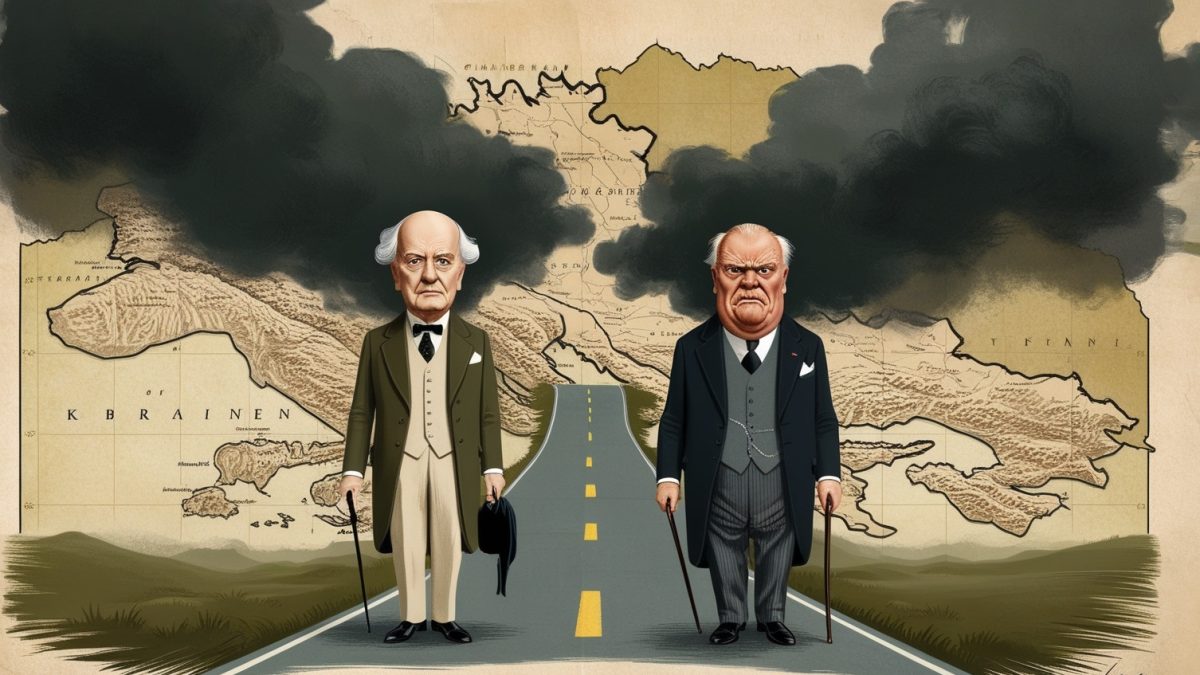
The Magical Vibes of Viburnum Berries: From Ukrainian Folklore to Gastronomic Delights!
June 4, 2023Чи оберуть західні лідери умиротворення чи спротив у війні в Україні?
October 6, 2024The ongoing war in Ukraine represents a pivotal moment for the world, especially for Western leaders. Faced with Russian aggression, these leaders must decide: will they follow the path of appeasement, reminiscent of Neville Chamberlain’s infamous approach during World War II? Or will they adopt Winston Churchill’s unyielding defiance against authoritarian expansion? History offers critical insights into this dilemma, with past events demonstrating the dangers of appeasement and the necessity of firm resistance to secure lasting peace.
The Chamberlain Approach: Appeasement and Its Dangers
In 1938, British Prime Minister Neville Chamberlain signed the Munich Agreement, allowing Nazi Germany to annex the Sudetenland from Czechoslovakia in exchange for the promise of peace. Chamberlain believed this concession would prevent a broader conflict, but it only emboldened Adolf Hitler to pursue further territorial ambitions. The outcome was disastrous: within a year, Europe was plunged into the horrors of World War II. The lesson from this historical episode is clear—conceding to a dictator often leads not to peace, but to more conflict.
In today’s context, Russian President Vladimir Putin’s invasion of Ukraine mirrors Hitler’s aggressive territorial claims. By framing his actions as necessary to “protect” Russian-speaking populations and reclaim historic lands, Putin echoes the expansionist rhetoric of the past. If Western leaders choose to appease Putin by allowing him to retain parts of Ukraine, such as Crimea or the Donbas, it would send a dangerous signal of weakness. Like Hitler, Putin may interpret these concessions as a green light to pursue further aggression.
The Churchillian Path: Strength and Resolve
Winston Churchill, Chamberlain’s successor, famously rejected appeasement, declaring that Britain would never surrender to tyranny. Churchill understood that standing firm against authoritarian aggression, no matter how daunting the odds, was the only way to ensure peace. His leadership, along with the eventual support of the Allies, ultimately led to the defeat of Nazi Germany.
Today, many Western nations, including the United States and European Union members, are taking a Churchillian stance by providing military and financial aid to Ukraine. However, the question remains: will this support endure if the war continues to drag on, or will the pressures of economic and political fatigue lead to a shift towards appeasement?
Lessons from History: Why Appeasement Fails
History has shown repeatedly that appeasement does not work when confronting expansionist regimes. It only serves to encourage further aggression. The failure to respond decisively to Putin’s annexation of Crimea in 2014 likely contributed to his decision to launch a full-scale invasion of Ukraine in 2022. Granting Putin even a partial victory by allowing him to hold onto Ukrainian territory would only embolden him to target other vulnerable nations, such as Moldova or the Baltic states.
Conclusion: The Path to Peace Lies in Strength
The choice facing Western leaders is strikingly similar to the decisions that had to be made in the late 1930s. Will they take the easy road of appeasement, hoping to avoid further conflict by allowing Putin to carve up Ukraine? Or will they follow the tougher but more principled path of resisting authoritarian aggression at all costs?
The lessons of World War II are clear—peace achieved through weakness is rarely lasting. To ensure a stable and secure future for Ukraine and Europe, the West must continue to support Ukraine with unwavering resolve until Russian forces are fully expelled from its territory.
If you’re ready to take a stand for Ukraine and contribute to its fight for freedom and security, reach out to us today! We’re here to discuss how you can make a meaningful impact and support a brighter future for Ukraine and the world.
Contact us now!


